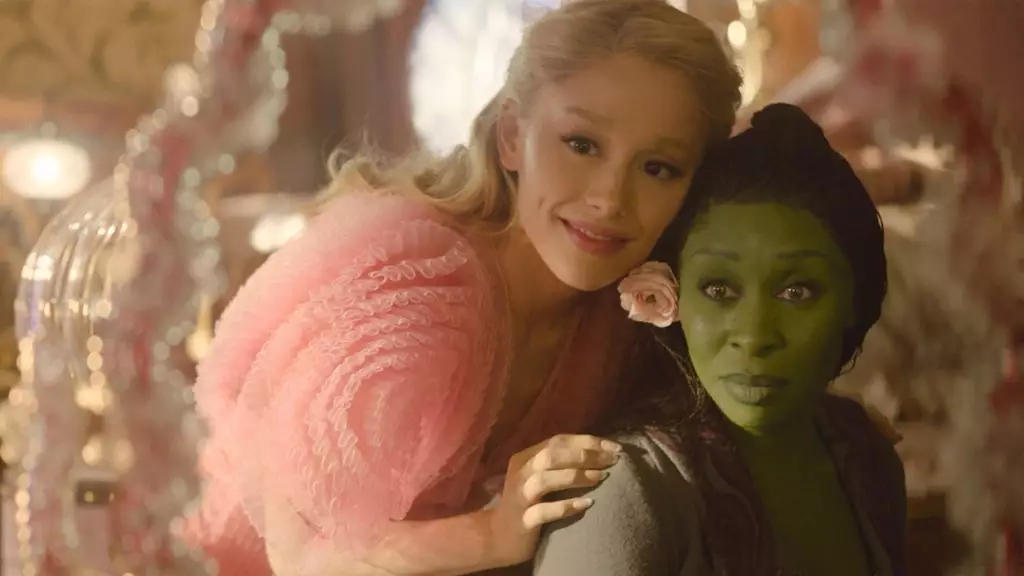Recently, toy manufacturer Mattel found itself at the center of a social media storm following a glaring error in the packaging of its eagerly anticipated Wicked collection dolls. Intended to coincide with the upcoming film adaptation of the acclaimed Broadway musical, these dolls—modeled after stars Cynthia Erivo and Ariana Grande—were designed to celebrate a story beloved by many. Unfortunately, a misprint on their packaging inadvertently redirected consumers to an unintended and very adult website, prompting outrage across various online platforms.
The link that was supposed to guide consumers to the official movie website, WickedMovie.com, instead directed users toward a site associated with Wicked Pictures, a company specializing in adult entertainment. This harmless yet egregious slip has raised numerous questions about quality control and the potential implications for a brand that primarily targets children.
The fallout from this unfortunate mistype is multifaceted. For one, it exposes Mattel to harsh scrutiny regarding its oversight protocols, particularly in an industry where brand reputation is paramount. Parents rightly expressed concern that toys intended for children could lead them to inappropriate content. Social media reactions ranged from angry remarks about the oversight to humorous jabs aimed at whatever marketing team member might bear the brunt of the blame.
Moreover, the error echoes the importance of meticulous copy editing, especially when it comes to packaging intended for young audiences. This incident serves as a classic example of how a minor detail can snowball into a significant public relations issue.
Notably, the power of social media as both a platform for rapid information dissemination and a vehicle for public discourse has never been more apparent. Users quickly took to platforms like Reddit and Twitter, amplifying the mistake and highlighting the absurdity of the situation. Such rapid spread of information turned a simple packaging mishap into a trending topic, engendering widespread engagement and discussion around the topic.
This situation underscores how quickly brands can find themselves in hot water due to social media’s power. Once information has gone viral, rebuffing or managing the backlash can prove to be an overwhelming challenge.
Mattel’s Response
In response to backlash, Mattel promptly issued a statement acknowledging the error and assuring consumers that the company is working diligently to address the oversight. They advised parents to either discard the defective packaging or conceal the erroneous link, emphasizing their commitment to consumer safety. Mattel’s swift response indicates an understanding of the potential fallout, as the children’s toy market is particularly sensitive to controversies surrounding child appropriateness.
What remains to be seen is how this incident will affect sales of the Wicked dolls and the brand reputation of Mattel moving forward. It is crucial for the company to ensure that similar errors do not reoccur, ideally restoring consumer trust through improved quality control measures.
Learning from Mistakes
Ultimately, this incident serves as a powerful reminder of the interconnectedness of brand management and consumer perceptions. Mistakes happen, but how a company handles these errors makes all the difference. Mattel’s commitment to taking immediate action is commendable, and it represents an opportunity for them to reinforce their promise to provide safe products for children.
This debacle also prompts a broader discussion about the implications of adult-centric brands and content overlapping with products meant for younger audiences. As cross-referenced marketing becomes increasingly common, brands must navigate these waters carefully, ensuring that their communications are precise and targeted.
The Mattel Wicked dolls misprint serves as both a cautionary tale and a learning opportunity for other companies. As the toy market evolves, maintaining that delicate balance between creativity and responsibility remains essential for enticing and retaining consumer loyalty. The narrative surrounding the Wicked dolls may come to define an era in which corporations grow more attuned to the nuances of their messaging and aware of their audience’s sensibilities.

Leave a Reply